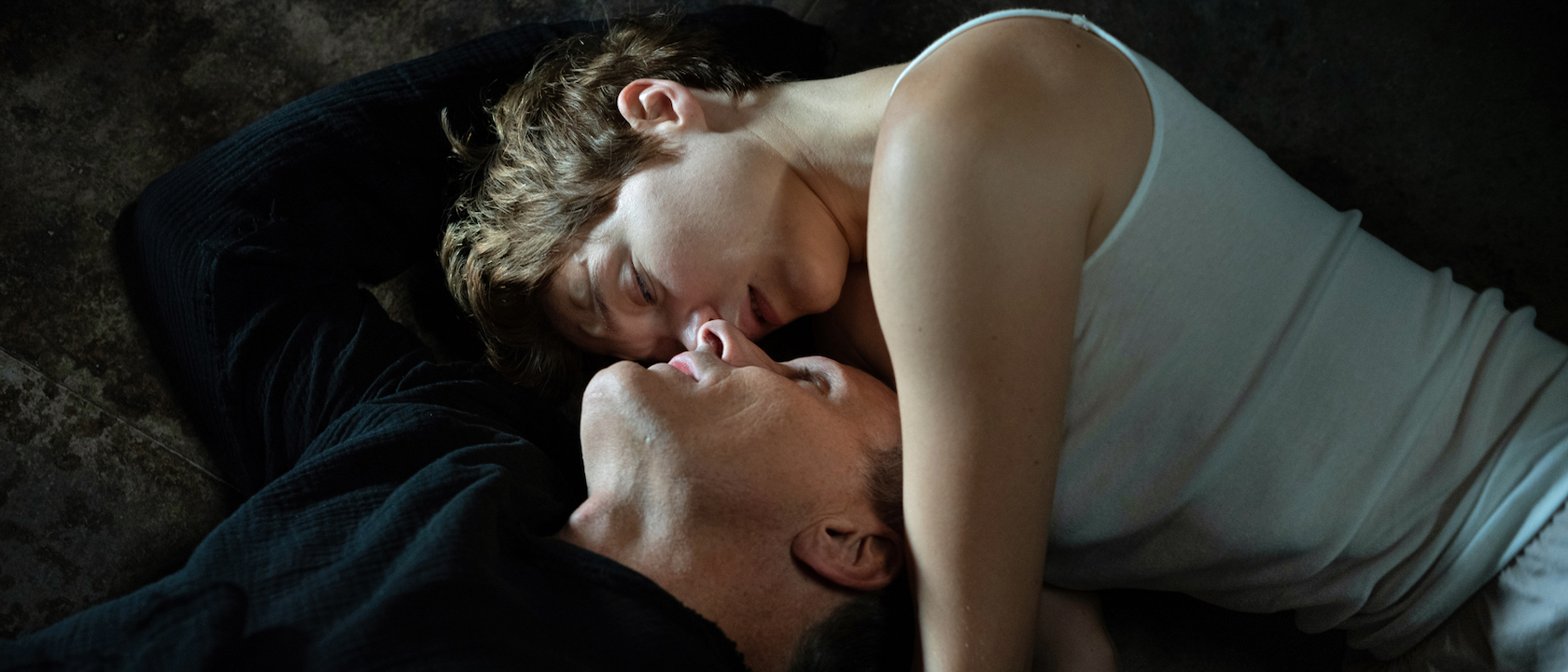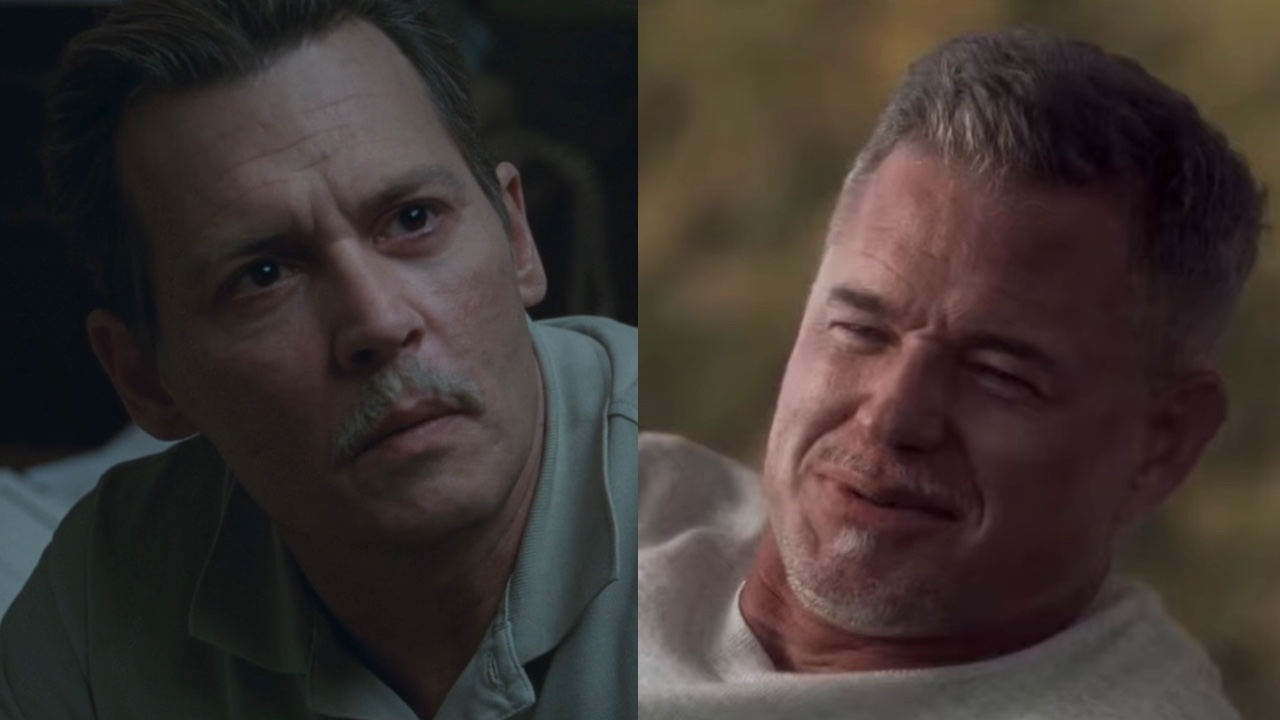When we look at the history of the human race, one pattern that continues to progress is our eagerness to push the envelope and lean into things that generations before us would snicker at and be bewildered by. In David Cronenberg’s latest film, Crimes of the Future, that modernization is a redefinition of how we view our bodies as a vessel for pleasure. The dubbed “King of Venereal Horror” imagines that far into the future we may become bored with our current notions around sex, and the regular twisting and turning into our skin and organs is the kind of intimacy we may crave. Surgery is the new porn and eroticism of society. The thought is enough to make you squirm, isn't it?
Following David Cronenberg’s more recent, contemporary works from the ‘90s to 2014’s Map To The Stars, the filmmaker has finally returned with Crimes of the Future to his sci-fi/horror roots, for which he is still most beloved. The power of the concept itself is enough to induce horror considering our own obscene tendencies as humans, because hey, in a few hundred years, we might go there.
The title was previously used for one of his first features in 1970, but this is not a remake. It is however, the realization of a project Cronenberg has had in the works for nearly twenty years – and it shows. Crimes of the Future is incredibly rich in its ideas and world building – it feels like the stellar adaptation of a dusty ‘80s sci-fi novel you might find adjacent to Dune on a bookshelf. But, to its credit, the stickler for Crimes of the Future is presenting this expansive idea in a way where one craves for it to go even further down its hole of visceral imagery. But, within its incredibly crafted and terrifying visions, audiences never are quite sent to the deep end of its thematic horrors.
Crimes Of The Future balances its slow burn science fiction vision with effective body horror, but sometimes it gets silly.
Crimes of the Future follows two performance artists – Viggo Mortensen’s Saul Tenser and Léa Seydoux’s Caprice – who have become well-known within the movie’s somewhat ambiguous setting and far future. Caprice, who was a trauma surgeon prior to her current profession, performs surgeries on Saul while audiences ‘ooh’ and ‘ahh’ at their shows. Saul has the unique ability to will new organs to grow into his body, which Caprice regularly removes during their shows.
They are logged into an Organ Registry – which is where Kristen Stewart’s Timlin and Don McKellar’s Wippet come in. They are logging these organs for them, which in this society adds a certain sexual appeal and scientific intrigue to Saul’s profile as an artist.
Saul and Caprice’s act is one of many, all of whom serve as the new primary form of entertainment in between couples in dark alleys cutting up each other for sexual pleasure in a world numb to “the old sex.” The lengths this science fiction concept goes to imagine how people live their daily lives in this dark, twisted fantasy. That being said, there are also a few moments that come off as laughable in the wrong places. It can be tough to follow the tone when jokes are being cracked amidst some otherwise disturbing material. It’s welcome in a sense because you don’t want Crimes of the Future to be cold as ice, but tones don't always blend with ease.
Amidst this, Saul finds a new show for himself and Caprice that will really push the boundaries of their performance art relating to a child. In this thread, Crimes of the Future feels like Cronenberg’s version of a science fiction, slow-burn noir. The movie is careful with how it builds tension. Its frequent body horror moments don't emerge into a the big scares one might imagine from it, but instead it's an interesting (sometimes boring) set mystery specifically within Saul and Caprice's world.
Your Daily Blend of Entertainment News
Léa Seydoux and Kristen Stewart particularly astonish with offbeat but enrapturing performances.
As Léa Seydoux has become a highlight within the Bond franchise and other recent roles, the actor brings her comforting presence to Crimes of the Future as the movie’s most exciting character. Seydoux's Caprice is calm, cool and completely passionate in her work. She elevates Mortensen’s character, who is a more reserved and indifferent character, with a unique weight to bear in his performance.
In contrast to Seydoux, comes another particularly terrific performance from Kristen Stewart – a mousy investigator of the Organ Registry who also becomes very invested in Saul. Her delivery somehow fits in the world and is animated, bold and unlike anything we've ever seen from the Oscar nominee. Both Seydoux and Stewart also sell a sex appeal that's key to Crimes of the Future in its own weird, very particular, classy, not insanely perverse way.
Cronenberg has something profound to say about human nature’s evolution.
As Crimes of the Future reaches its final moments before Howard Shore’s effective score ramps back up in the credits, it's clear David Cronenberg’s film is firmly centered on not only its concept, but what he wants to say about humankind through it. Among the stomaching of the blood, guts and weird eroticism of Crimes of the Future, the sci-fi drama is slow-building and steady with its hand. If only all the slicing and thought-provoking exercise had paid off in a third act as powerful as the subject and the rest of the tension Cronenberg builds. There's either an extra 20 minutes the movie could have benefitted from, or it needed to be a tighter film overall.
Throughout the movie there are a number of lines that don’t dance around, but rather in plain words state the legendary filmmaker’s thesis for the film. The next stage of human evolution down the line could transform us into something genetically new. Crimes of the Future asks the question: if we grow numb to the human warning system of pain, are we human anymore? It succeeds in asking the question and provides a distinctive vision for how horrific humankind is and can be.

Sarah El-Mahmoud has been with CinemaBlend since 2018 after graduating from Cal State Fullerton with a degree in Journalism. In college, she was the Managing Editor of the award-winning college paper, The Daily Titan, where she specialized in writing/editing long-form features, profiles and arts & entertainment coverage, including her first run-in with movie reporting, with a phone interview with Guillermo del Toro for Best Picture winner, The Shape of Water. Now she's into covering YA television and movies, and plenty of horror. Word webslinger. All her writing should be read in Sarah Connor’s Terminator 2 voice over.

